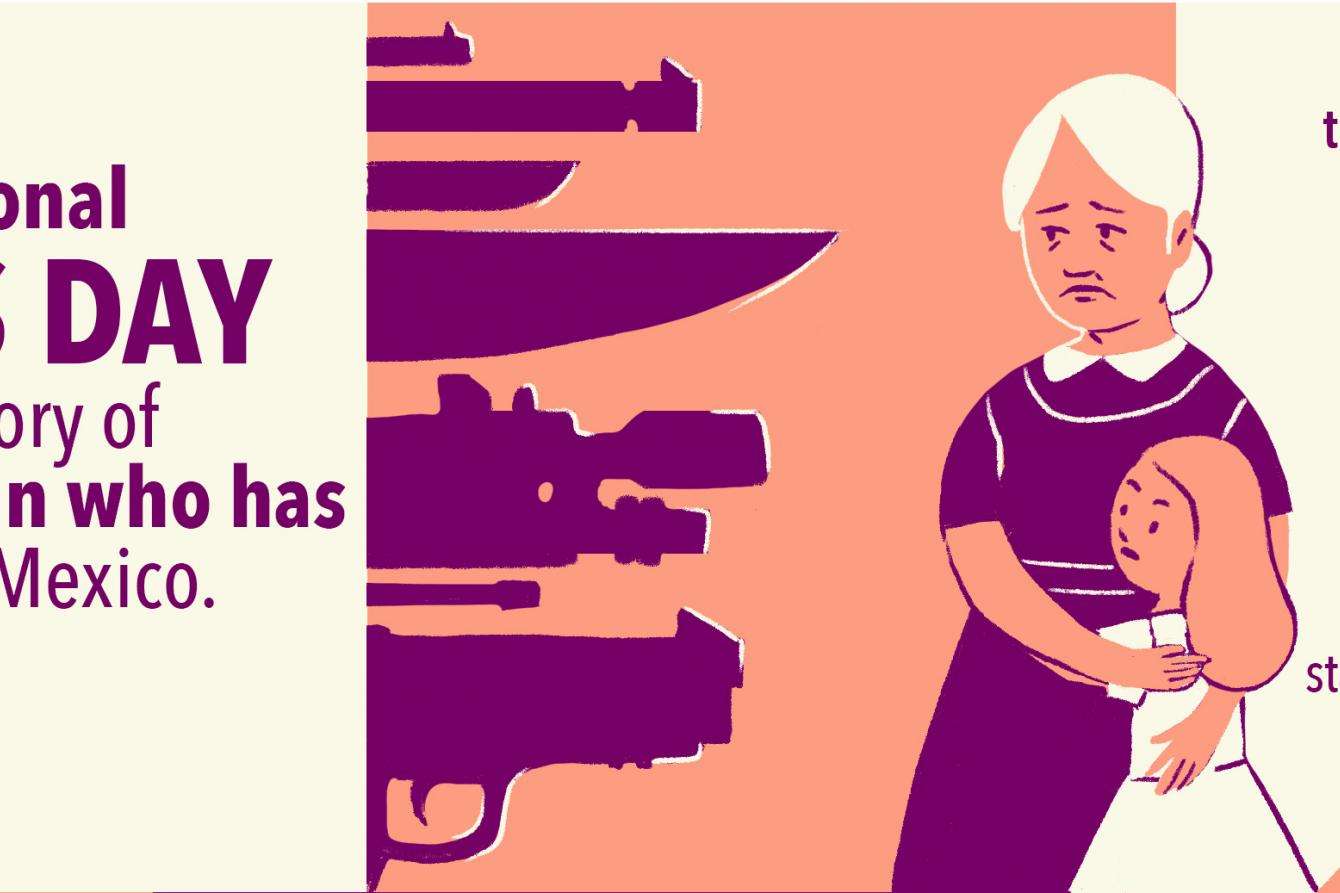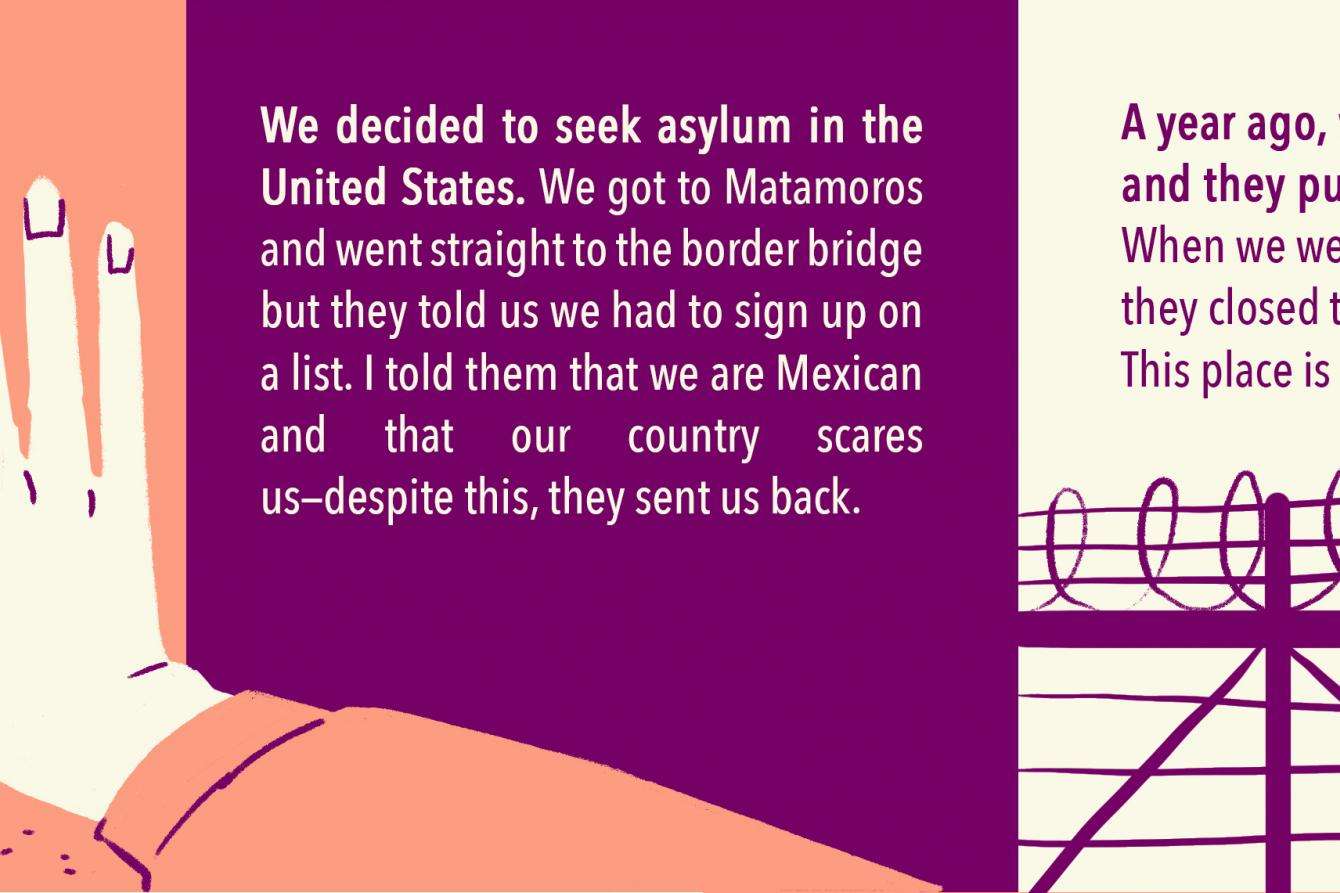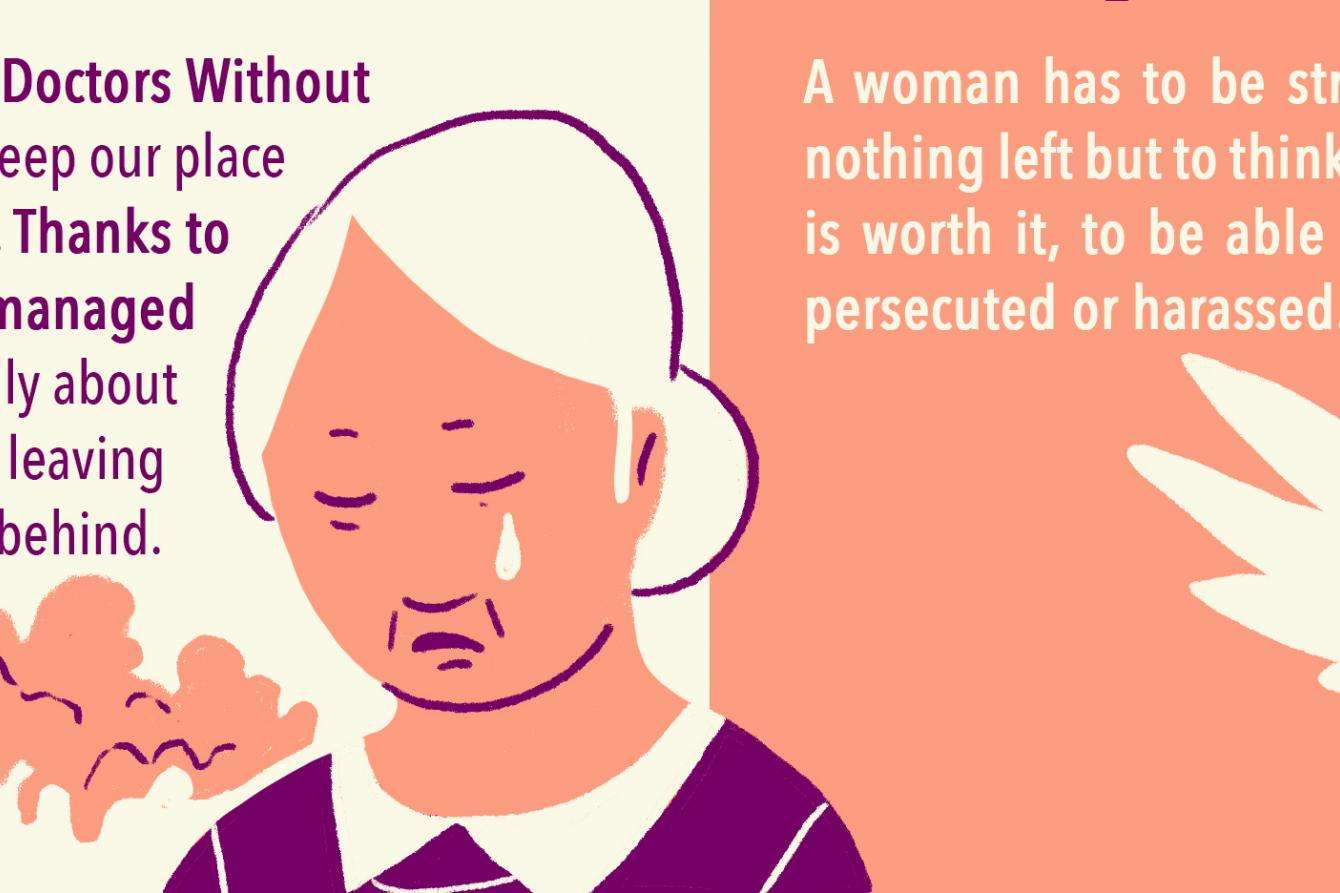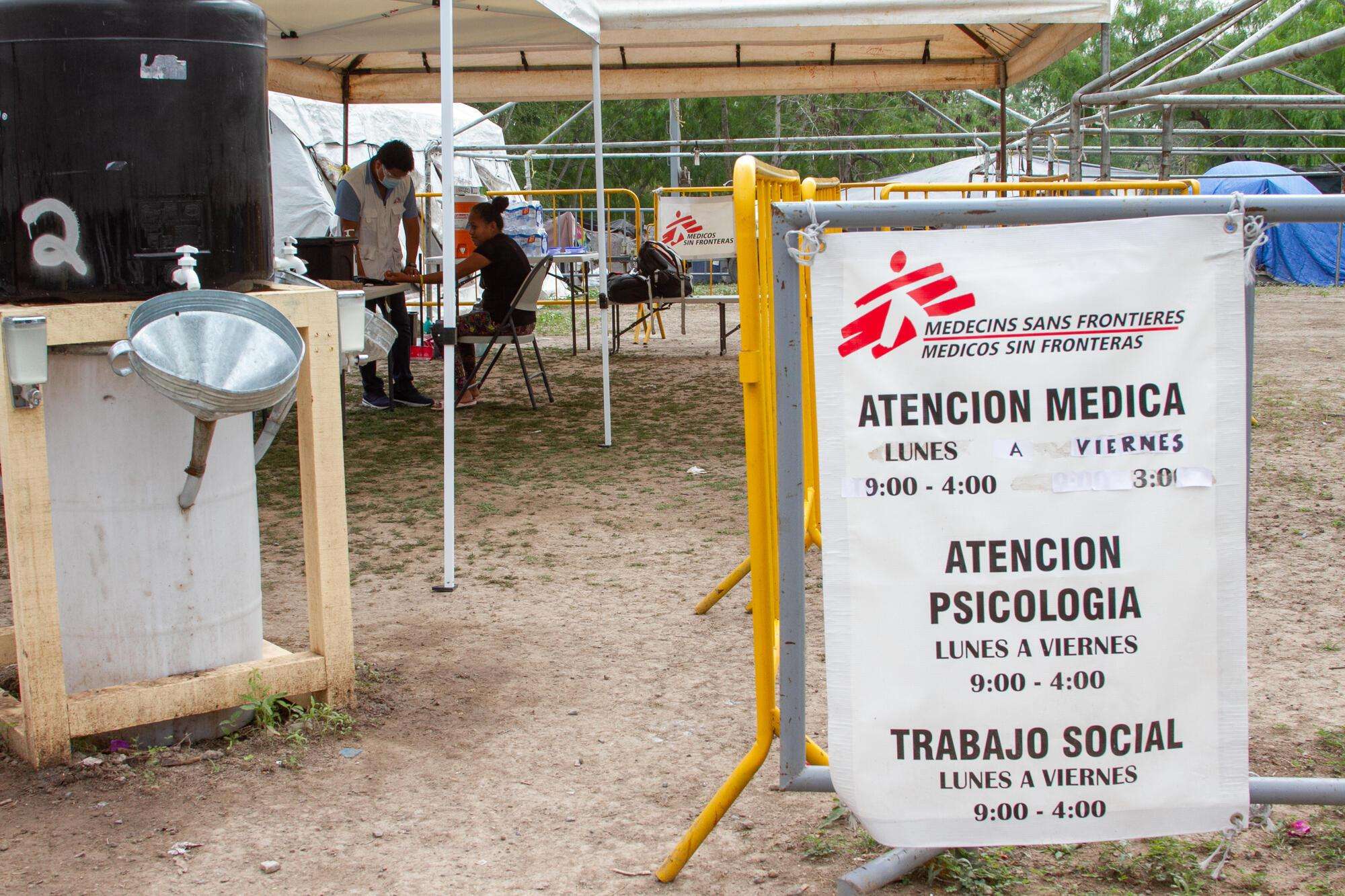The Migrant Protection Protocols (MPP) forced some 60,000 asylum seekers looking for safety in the United States (US) back to Mexico to await their hearings. Since MPP was implemented in February, 2019, Doctors Without Borders/Médecins Sans Frontières has provided medical and mental health care to many of those who were left to wait in limbo in makeshift tent camps along the Rio Grande, or in dangerous border cities where they are vulnerable to kidnapping, extortion, and other forms of violence.
In a makeshift tent camp in Matamoros where some families have lived in unacceptable conditions for more than a year, our teams provide mental health care to residents of the camp. An alarming number of our patients spoke about the sexual violence they experienced on their way to the US, others lived in constant fear of being kidnapped, and many also had children to protect and provide for.
In 2020, MSF provided 2,126 medical consultations and 2,547 mental health consultations to women in Reynosa and Matamoros camp, including survivors of sexual violence, 85 percent of whom were women.
On February 19, 2021, the US government announced that it would gradually begin processing asylum applications for people in MPP. This has renewed the hope of many migrants in Mexico.
MSF remains concerned for the thousands of migrants and asylum seekers on the border and elsewhere in Mexico who are still waiting for their cases to be heard.
Patricia Betanzos, an MSF psychologist, has provided mental health care to asylum seekers in Matamoros for almost two years. Here, she talks about the challenges her patients face, the impact of waiting indefinitely for their asylum hearings, and the compounding factors that have caused some of them to lose the will to live.
A difficult winter
I think they have been very cold, considering their tents are made out of plastic, they are out in the open and they do not really have adequate blankets or clothing. Even more so when you think that within this community you can find everyone from newborn babies to elderly people. We have identified respiratory problems, which people try to treat with home remedies or by coming to our medical office, but [not everyone seeks care] because many are afraid of having to isolate [due to the threat of COVID-19].

Sexual violence: A sad reality for many
The situation makes [women] more vulnerable. We [also] see many [women] alone or [just with] their children. So, not only are they responsible for themselves, but also for their children. They are exposed to different types of risks, such as being abducted or sexually assaulted. Together with the burden of providing care for their families’ most basic needs, this makes them much more vulnerable.
[Women] are well aware that when they leave their country, they may very likely experience sexual violence. They may also witness violence, murders, or threats. They are afraid of being kidnapped or of being forcibly recruited by armed groups in their country or abroad. They also face discrimination.
We have [treated] women who reported being survivors of sexual violence on their journey after leaving their country. Unfortunately, by the time they tell us about this situation, more than 72 hours have passed, and they have not received medical attention (if survivors of sexual violence are able to seek care within 72 hours after the assault, they can receive vital medications such as emergency contraception to prevent pregnancy and post-exposure prophylaxis to prevent HIV).
Mental health care built on trust
From the moment people started settling in the camp, MSF worked at a community and clinical level. We talk about the importance of mental health care. We do this so they are aware of the potential reactions they may have to situations that become difficult for them—that regular headaches, backaches or problems falling asleep are not normal. Having no appetite or eating only once a day is not normal. As soon as they know this, they start to become aware of these symptoms.
When they come to us, we tell them we are a neutral and impartial organization and that all the information they give us is totally confidential. We promote an atmosphere of trust for them, which helps them because the very act of talking and saying what they are feeling or what they are going through unburdens them a lot. At clinical level, individual and family interventions are carried out, and when we identify people who have developed psychiatric disorders, we offer pharmacological treatment.

The many layers of grief
[One of the main health issues we see in women] is post-traumatic stress disorder. After an unexpected violent incident, many reactions are triggered in their bodies and in their states of mind. Moreover, these women have been waiting for over a year [for their asylum hearings], so there are many issues that weigh them down and worry them, and some women get into a depressive state. We see it when they show signs of hopelessness, a lack of interest in doing their daily activities, such as getting up, cooking breakfast, or starting a fire. It reflects a lack of mood, fatigue or loss of energy to perform these activities. Insomnia or hypersomnia are constant every day.
We have talked with women who no longer want to live because their situation becomes very difficult and they no longer find meaning in their lives. When they are unable to find a way out [of their current situation], they have thoughts of [ending their lives] and some of them no longer have the hope that they can improve their future.
We have to consider grief not only as the loss of a person but the loss of something, and they have lost their place of origin, their home, their family. I think they are constantly facing this as they realize the needs they have within the camp and remember that at some point they had economic stability and security with their family. These women [used to work]—some of them are doctors and nurses—yet they’ve lost that identity.
Not only do women have to take care of their children, feed them, wash their clothes and keep the tent clean, they also have to fetch firewood to start their fires, fetch water, and travel to the washing places.

Strong women
[The women I have met have] a strength that must be recognized. They struggle on a daily basis. They must stay strong for their children and for themselves. They seek professional help to heal their emotional situation. Even though they are so strong, they also need support. I encourage them to look at themselves from the first day they came to the consultation to now and what their progress has been. I see the care MSF offers can make a difference because it strengthens them women and their desire to continue living and fighting.
All women should have the freedom to choose, to pursue a better life, to not feel guilty for the times they have tried and failed. [But I hope] that there will always be women who help others, so that they can keep going.




